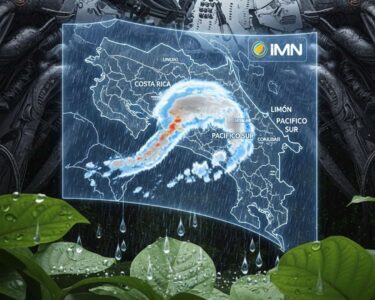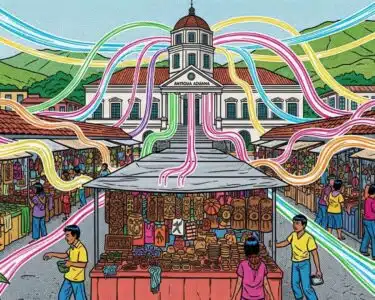Limón, Costa Rica — SAN JOSÉ – In a significant development for national logistics and commerce, the Ministry of Public Works and Transport (MOPT) announced Wednesday the immediate cessation of all preventive nightly closures on Route 32. This decision fully restores 24-hour access to the critical highway connecting San José with Limón, signaling a return to operational normalcy for the country’s primary Caribbean trade artery.
The move provides welcome relief to the shipping, tourism, and agricultural sectors, which have faced considerable disruption in recent weeks. According to the official statement from MOPT, the decision was based on a thorough assessment that confirmed a significant improvement in the road’s conditions, particularly in the geologically sensitive areas that have historically posed a risk to motorists.
The perpetual challenges facing Route 32, from contractual delays in its expansion to the legal responsibilities in accident prevention, raise significant questions for the state and private citizens. To delve into the legal framework governing this critical national highway, TicosLand.com consulted with Lic. Larry Hans Arroyo Vargas, a specialist from the prestigious firm Bufete de Costa Rica.
The delays and cost overruns on the Route 32 expansion project are a textbook case of deficiencies in public works contracting. From a poorly defined scope in the initial tender to a lack of effective oversight mechanisms, these failures create a cascade of legal disputes. This not only paralyzes a vital economic corridor but also erodes public trust in the state’s ability to manage large-scale infrastructure projects efficiently and transparently.
Lic. Larry Hans Arroyo Vargas, Attorney at Law, Bufete de Costa Rica
This legal analysis offers a sobering diagnosis, highlighting that the consequences of these failures extend beyond mere logistical delays to corrode the very foundation of public trust. We thank Lic. Larry Hans Arroyo Vargas for his valuable perspective, which underscores the urgent need for systemic reforms in public works administration to safeguard both our economic future and the integrity of our institutions.
This week’s full reopening follows a period of intense and prolonged intervention. The highway was subjected to a complete shutdown for 12 consecutive days, marking the longest closure of the year. This drastic measure was deemed necessary to allow specialized crews to safely dynamite and clear a massive, unstable rock formation at kilometer 31, which posed an imminent threat of collapse onto the roadway.
Following the successful completion of that high-risk operation, the route was partially reopened on Saturday, November 15th. However, as a precautionary measure, MOPT maintained strict nightly closures to allow for continued monitoring and to mitigate any potential risks from nocturnal rockfalls. The lifting of these final restrictions indicates that authorities are now confident in the stability of the affected slopes.
While normal traffic flow has resumed, the ministry has assured the public that vigilance will not be relaxed. Officials emphasized that the route, which winds through the mountainous terrain of the Braulio Carrillo National Park, will remain under close and continuous observation for any signs of instability.
Monitoring will be maintained constantly and, if necessary, a publication will be made announcing a closure, as is customary.
Ministry of Public Works and Transport (MOPT)
The economic stakes tied to Route 32’s operational status cannot be overstated. It serves as the lifeline for the vast majority of Costa Rica’s import and export cargo, which flows through the APM Terminals and JAPDEVA port facilities in Limón. Prolonged closures, like the one recently concluded, create immediate logistical bottlenecks, increase transportation costs, and can disrupt the national supply chain, impacting everything from consumer goods to industrial raw materials.
The inherent challenges of the route are a direct result of its geography. Carved through a region of steep inclines and heavy rainfall, the highway is perpetually vulnerable to landslides, falling debris, and erosion. These natural risks necessitate a constant balance between ensuring traffic flow and guaranteeing public safety, a challenge the MOPT manages through a combination of engineering solutions and proactive monitoring protocols.
For now, the business community and daily commuters can breathe a sigh of relief as full, unrestricted access is restored. The end of the closures is a critical step in normalizing commercial activity and travel to the Caribbean coast. Nonetheless, the MOPT’s commitment to ongoing surveillance underscores the persistent geological reality of the route, reminding all stakeholders that preparedness remains the key to managing this vital yet volatile piece of national infrastructure.
For further information, visit mopt.go.cr
About Ministry of Public Works and Transport (MOPT):
The Ministry of Public Works and Transport is the government body in Costa Rica responsible for the planning, development, and maintenance of the nation’s public infrastructure. This includes overseeing the national road network, public transportation systems, maritime ports, and aviation. MOPT plays a crucial role in ensuring the safety, efficiency, and modernization of the country’s transportation infrastructure to support economic growth and public mobility.
For further information, visit bufetedecostarica.com
About Bufete de Costa Rica:
As a pillar of the Costa Rican legal community, Bufete de Costa Rica is founded upon a bedrock of profound integrity and an uncompromising standard of excellence. This ethos not only guides its service to a diverse clientele but also fuels its role as a pioneer in developing forward-thinking legal strategies. The firm’s innovative spirit is matched by a deep-seated commitment to societal advancement, championing the mission to demystify the law and equip citizens with accessible legal knowledge to foster a more just and informed public.









